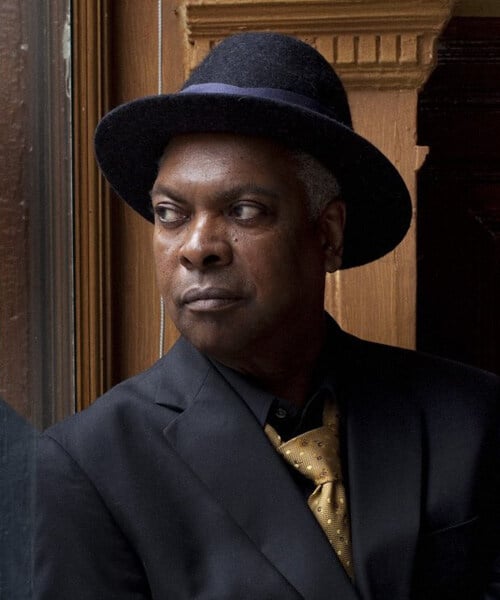
This is how Booker T. Jones, who performs on February 25, 2022 at Jack Singer Concert Hall, starts the penultimate mini-chapter of his 2019 memoir Time is Tight: My Life, Note by Note: “I have at last reached the point in my career where audiences demand my early work. Each show must include Green Onions and a couple of others from that era.”[2] That era is, of course, the classic 1960s period of Stax Records and the definition of the Memphis sound; and yet it’s only one chapter of Jones’ influential career, now in its seventh decade.
As the leader of Booker T. & the M.G.'s, Jones was a musical trailblazer. Jones and the group created a grooving yet sophisticated fusion of soul, R&B, and rock; with his keyboard playing as large a factor in their success as Steve Cropper’s celebrated guitar work, to say nothing of the fabulous rhythm sections that completed the lineup. Jones' work on the organ secured that instrument’s status as a foundational rhythm-section piece in popular soul music.
Booker T. and the M.G.’s stand out as a prominent biracial ensemble of the 1960s. Jones recounts in his memoir that the assassination of Martin Luther King Jr. at the Lorraine Hotel in Memphis, which often hosted Stax recording artists, felt like “a dreadful mockery of the harmonious racial mixing that went on at the Lorraine”.[1] Then as now, that harmonious spirit is a deserving model for an industry and culture often divided.
And yes: Jones, born 1944, experienced all this during his teens and early twenties. This was a motivated young man with a pipeline of educational-to-professional opportunities, enough confidence to seize them, and a faith that he was doing what he was meant to do. He continued to do it masterfully, playing on some of the most iconic records of the 20th century, including Sitting on the Dock of the Bay by Otis Redding and Ain’t No Sunshine by Bill Withers.
It’s hard to argue with Jones’ pre-eminence when it comes to that Memphis sound: tight instrumental rhythms plus melodies firmly rooted in Black church music. He, a highly literate arranger and multi-instrumentalist, had his fingerprints on so much of it.
But Jones, moving to California and gaining renown as a producer post-Stax, also made his mark with a broader range of artists. He produced Willie Nelson’s album Stardust, one of Nelson’s most successful; became a contemporary of Crosby, Stills, Nash, and Young in California; and released many solo albums alongside his session career.
Jones’ post-Stax legacy is one of labour and talent emerging from oppressive conditions, finding the due compensation as a songwriter-producer that never arrived in his years at Soulsville U.S.A. He has been recognized with a Rock and Roll Hall of Fame induction, two GRAMMY Award wins, and a GRAMMY Lifetime Achievement Award.
With Jones’ master musicianship influencing countless other artists, he is a bona fide icon; his upcoming appearance behind the Hammond organ is a welcome opportunity to experience a legend in action.
See Booker T. Jones live on February 25, 2023 in the Jack Singer Concert Hall as part of Arts Commons Presents’ Jazz series. Learn more at artscommmons.ca/bookert.
[1] Jones p. 157
[2] Jones p. 305.
Will Chernoff
Will Chernoff is among the Canadian jazz scene’s most active and visible young personalities. Will is best known as the proprietor of Rhythm Changes, a Vancouver-based music website and podcast. Will’s work has been credited with supporting a resurgence of live jazz in Vancouver in the wake of the pandemic. A bassist by trade, he has released two studio albums as a bandleader. Find him at rhythmchanges.ca or find his music at williamchernoff.com.




